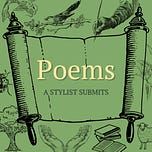The Fast and the Feast
By
“During Holy Week we eat only bread and water and uncooked vegetables, and that with restraint. On Great and Holy Friday we eat nothing, and on Great Saturday, too, we fast until the third hour and then have a little bread and water and one cup of wine.” —The Brothers Karamazov, 2.4.1
How strange it is to think that on this week, so many years ago, our Savior rode into Jerusalem, just like a king, and, dying for us, rose, defeating death. Has any stranger thing occurred at all? Events transpired at a rapid rate that final week; the tempo of the life of God’s own Son increasing swiftly to the point of his humiliation, and the pause before his resurrection. That tempo is reflected in the food some rustic monks were said to eat in one of our old novels: first the simple bread, which, by the week’s end, gave way to a fast. The fast was slowly broken on the day When His disciples would have mourned their loss— but notice that the monks, who knew the end, allowed themselves some wine, a small foretaste of what was soon to come; a subtle glimpse of hope fulfilled, which His own twelve dared not to give themselves. Indeed they knew, those monks, what we in hindsight also know— the end, the glorious triumph over death! Their hunger on the Friday symbolized his absence—a great emptiness. And, feasting, on the Sunday those monks would reflect upon the victory of their dear Christ— remember Him who would in all things sate their needs, whose sacrifice their former hunger signed; whose triumph their fine feasting testified. And my own tribe, the evangelicals, do none of this! We skip straight to the feast! Truly, my own people know little of ritual, or remembrance; we are wary of nearly all outward expressions of inward belief. Our bodies—do they ever feel the truths our minds embrace? Our senses (save the hearing)—is the gospel told to them? What lessons can my people learn from those monks in the book, whose lives, that week, were ordered by the fast before the feast?











Share this post